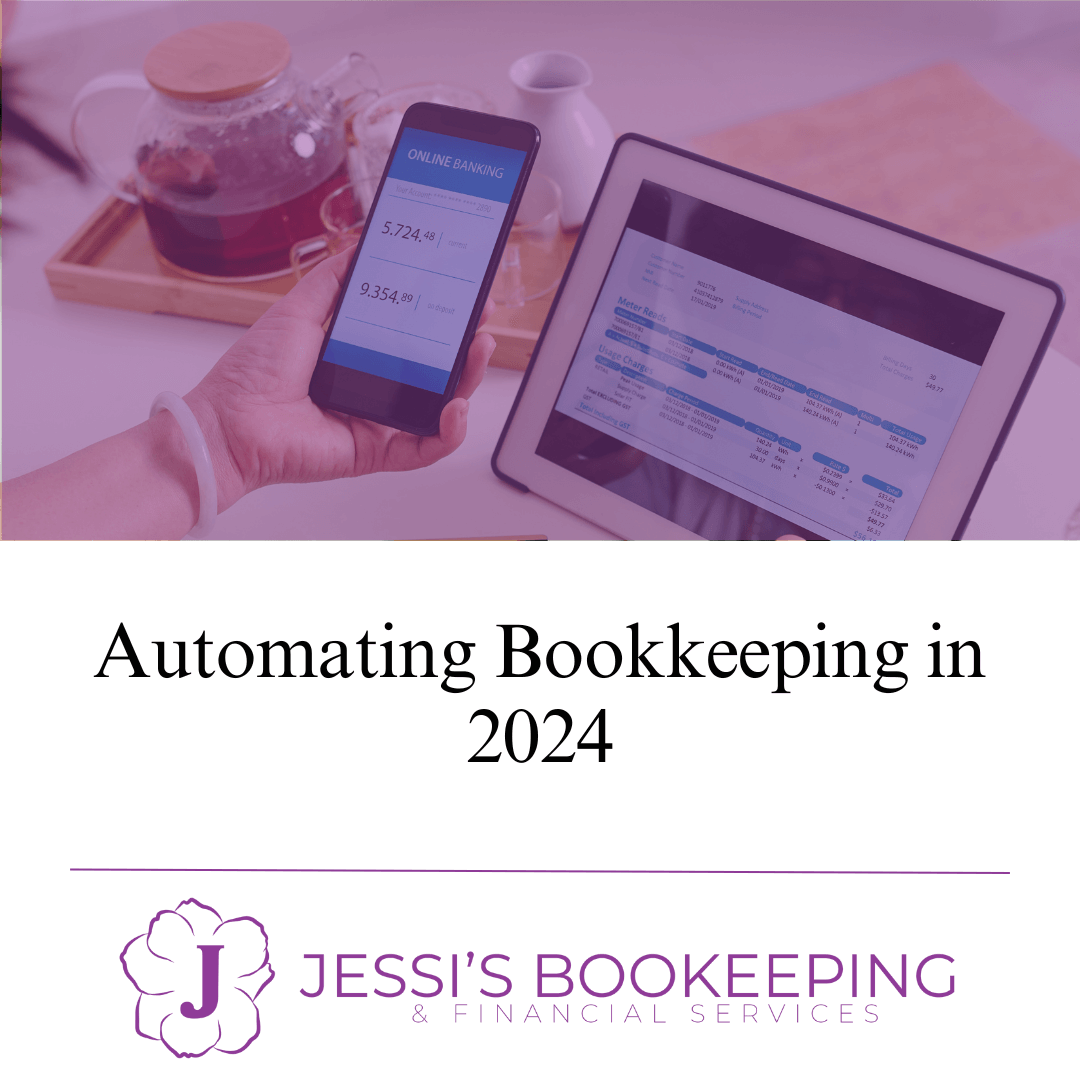Launching a small business is a challenging feat. There are so many factors to consider to ensure your new brand thrives. Bookkeeping for small businesses, while something you know is necessary, is also one of the most complicated things to keep track of when running a company. Enter Jessi’s Bookkeeping & Financial Services.
I’m here to explain what you need to know about bookkeeping for small businesses and how hiring a bookkeeper is worth the cost.

How a Bookkeeper Can Help Your Business
Bookkeepers and accountants are often confused with each other, but they’re two different things. A bookkeeper’s role is to record transactions and financially organize your company, while accountants provide analysis and advice on tax matters.
Bookkeepers can:
- Provide payroll management
- Offer tax support
- Conduct financial reporting
In-House Versus Outsourcing Bookkeeping
If your business is just starting and is on the smaller side, doing all the bookkeeping yourself may be the most cost-effective option. However, as your company grows in size and revenue, keeping your bookkeeping in-house will be more stressful than beneficial.
The cost of outsourcing your bookkeeping needs to a reliable expert like Jessi’s Bookkeeping & Financial Services depends on various factors, including:
- The experience of the bookkeeper
- The type of bookkeeping services you need
- The amount of time your bookkeeper requires to handle your business’s needs
- The type of responsibilities involved
Depending on your company’s requirements, you can hire a full or part-time bookkeeper. Whether you need to outsource a full-time bookkeeper or not depends on the amount of transactions your business conducts.
Bookkeeping Salary
According to Salary.com, as of 2023, the average bookkeeper in the United States makes $21 per hour. The median yearly salary is $51,618. What you pay your bookkeeper depends on their specific rates and the services you require.

Part-Time Versus Full-Time Bookkeeping
How do you know which type of bookkeeper you need? Part-time bookkeepers typically handle smaller tasks, like inputting receipts and tracking employee timesheets. Full-time bookkeepers, on the other hand, tackle everyday accounts, keep your business’s books in order, and essentially do it all — from invoicing and tracking timesheets to generating reports and much more.
Outsourcing Your Bookkeeping Needs
The most cost-effective option would be to outsource a bookkeeper for your business. The advantages of outsourcing include lesser costs and greater value per dollar spent. Outsourcing allows you to reap the benefits of a full-time bookkeeper without the costs associated with adding another employee to your payroll. Other benefits of outsourcing a bookkeeper include expertise and flexibility.

Set Your Small Business Up for Success With a Professional Bookkeeper
Owning and running your small business is exciting. The last thing you want to worry about is something going awry with your finances. While taking on bookkeeping tasks yourself may seem easy in the beginning, it can become overwhelming and take you away from other important tasks. That’s where Jessi’s Bookkeeping & Financial Services comes in.
I founded Jessi’s Bookkeeping & Financial Services to help owners of small and medium-sized businesses understand their finances and make better decisions for their future. I can help you understand your company’s taxes, cash flow, accounting, and more.
The best part? I’m a virtual bookkeeper. This means that no matter where your business is located, I can help you with all of your bookkeeping needs. For more information, contact Jessi’s Bookkeeping & Financial Services today.







